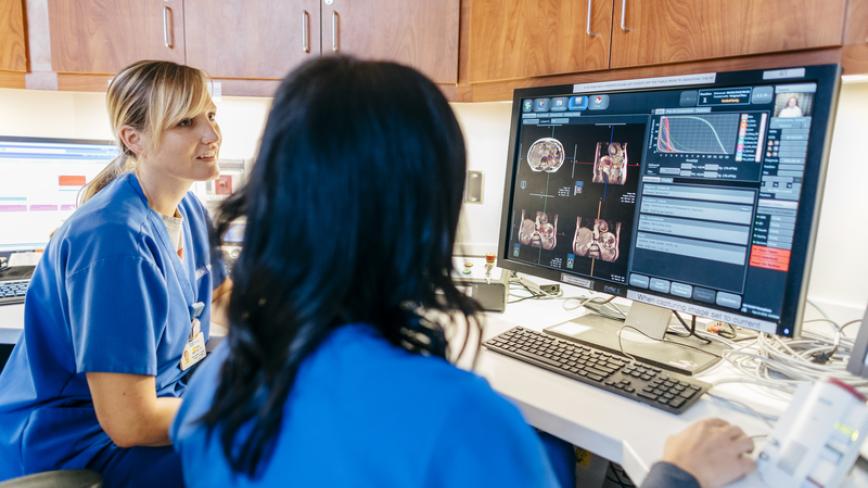Through its Health Data Governance Task Force, University of California Health’s Center for Data-driven Insights and Innovation (CDI2) brought together experts and stakeholders to assess opportunities and challenges in the development of a patient-informed, justice-based model of health data use. A multidisciplinary group of participants met virtually in the two-day conference, expanding a global conversation about health data governance that will inform the University of California Health vision for a data-driven learning healthcare system that improves the human condition.
The discussion topics during the virtual conference built on the principles and recommendations in an initial 2018 UC report on health data governance.
The President’s Ad Hoc Task Force on Health Data Governance report highlighted the need for a justice-based approach—one informed by community and patient input—to health data use. The task force further noted the absence of this ethos from existing legal and regulatory frameworks and recommended bringing experts together to explore what a justice-based model could look like.
A major topic emerging from conference presentations and panel discussions was the need for patient data and analyses of these data to reflect what is meaningful and relevant for the individual. Patricia Flatley Brennan, director of the National Library of Medicine within the National Institutes of Health (NIH), delivered a keynote address on the need for health data to reflect the patient as a person and not simply be a collection of condition-based data points. She explained that patients’ daily activities and social context determine the person’s health needs and goals. For example, patient-determined endpoints of care might be defined as returning to choir practice or being able to lift a grandchild.
The shift to person-centered data has implications for what experts agreed would be a much-needed overhaul of existing models for consent. Brennan cited an NIH study done with UCLA that established patients’ willingness to track data and share it with clinicians but raised the obligation to treat that data with care. By way of example, she related her own experience bringing in at-home blood pressure readings, only to have a nurse quickly confirm they were normal and dispose of Brennan’s “precious data.”
Conference participants discussed the need for institutions and industry to find ways to demonstrate to patients the potential benefits from having their data inform research, development of new interventions and setting of policy.
Participants also addressed several success factors for patient and community engagement and participation in the use of their data. These success factors, especially important for underserved communities bearing the burdens of need and disease, include patient health literacy, community-specific strategies, and institutions’ responsibility to remove the obstacles to participation.
Conference speakers and participants represented the fields of research, bioethics, privacy, clinical practice and for-profit industry. In addition to Brennan, experts leading the conversation included:
- Donna Cryer, J.D., founder and CEO of the Global Liver Institute. Cryer emphasized that the purpose of collecting and creating health data is to make people well, and that engagement of patients is necessary to (not contrary to) the performance of high-quality research.
- Jay Shaw, Ph.D., Institute of Health Policy, Management and Evaluation, University of Toronto. Shaw proposed expanding the scope of “justice” beyond fairness, accountability and transparency in the use of artificial intelligence, to include parity of participation by patients and the removal of institutionalized barriers to participation.
- John Wilbanks, senior medical director at Biogen. Wilbanks observed the need for accelerated and innovative approaches to public-private health care partnerships–and considerations for and examples of successful internet-based models.
The Health Data Governance Task Force is a systemwide task force organized by CDI2, which oversees the University of California Health Data Warehouse comprising millions of patient records and more than two billion data points for patient vital signs and test results. A full report from the conference is forthcoming from the Health Data Task Force. Conference highlights can be viewed in this video.

